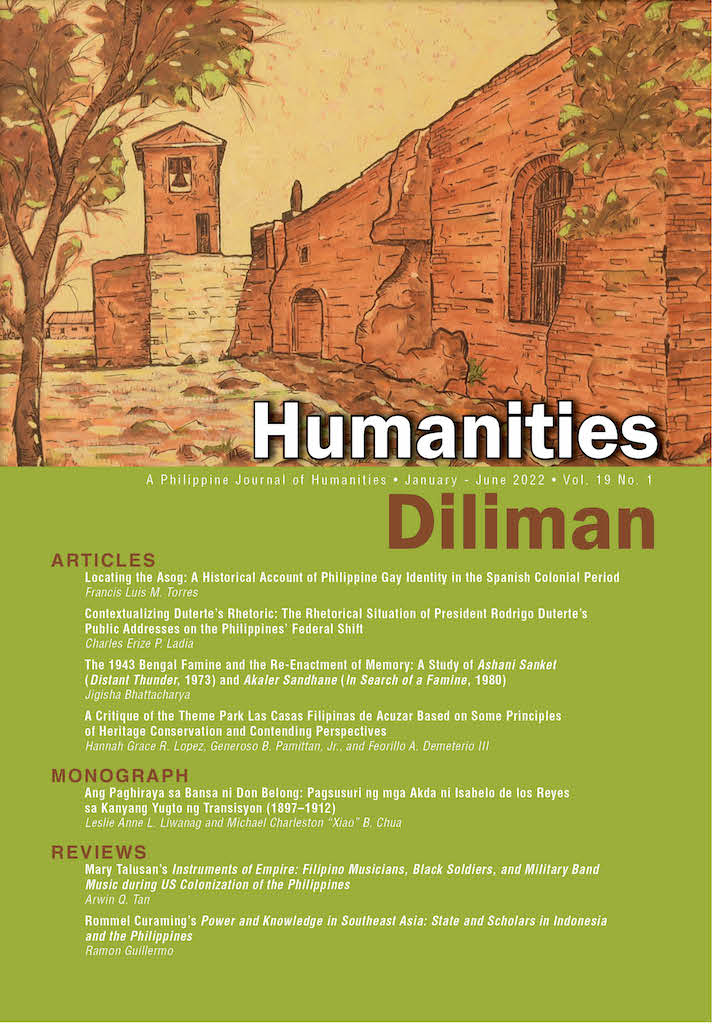Contextualizing Duterte’s Rhetoric: The Rhetorical Situation of President Rodrigo Duterte’s Public Addresses on the Philippines’ Federal Shift
Abstract
Positive reception from the public is essential as Philippine President Rodrigo Duterte tries to rally support for a constitutional amendment transitioning the country’s unitary government into a federal one—a move requiring political and structural shifts that have never garnered support in Philippine history. This paper, in investigating the rhetorical strategies of a popular and populist public figure, asks the question: how did President Rodrigo Duterte respond to and recreate rhetorical situations in persuading the Filipino public to support his federal proposal?
Using Lloyd Bitzer’s rhetorical situation, the analysis explains how Duterte’s public utterances reveal his careful, conscious, and crucial choices of which social issues to highlight in order to persuade his audience. Aside from reiterating his intent not to extend his presidential term, his rhetoric underscores three exigences: (1) poor governance structure mandated by the current setup, (2) unending conflict in the Mindanao region, and (3) unfair economic opportunities for countryside municipalities and provinces. In his attempt to influence the audience’s realities, his speeches focused on the injustices that audiences in Mindanao experience and the promise of federalism as the only solution.
But the main constraint proved to be persistent – the Filipino audience had doubts in any constitutional amendment, as reflected in public polls. Duterte’s rhetorical strategy failed to persuade the general population about the urgency, necessity, and the benefits of his federal proposal. This failure is due to the rhetorical situation—a lack of identification towards a common vision and a tradition of dissent against any amendment of the constitution. In this case, the rhetorical situation exceeded his presidential rhetoric.


